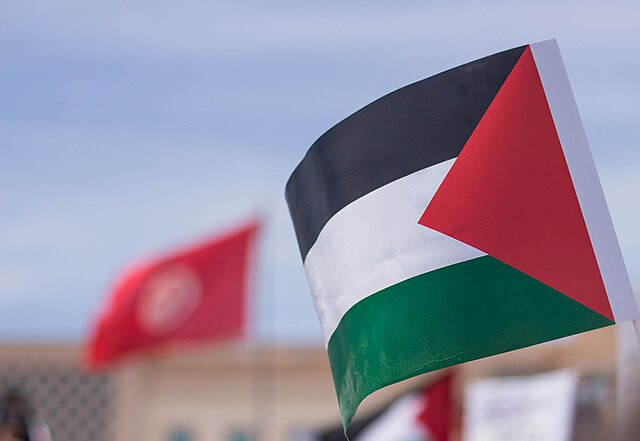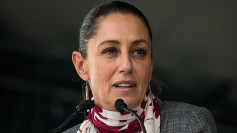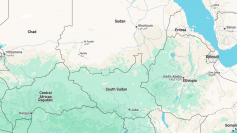China was hosting talks between the rival Palestinian factions Hamas and Fatah in Beijing on Friday, as part of its efforts to mediate an end to the internal divisions and the ongoing conflict in the Gaza Strip. The meeting, which has not been officially confirmed by the Chinese foreign ministry, comes amid a major power shuffle in the Fatah-led West Bank and pressure from Washington for the party to step into the Israel-Gaza war and prepare post-war reforms in the Hamas-controlled Gaza Strip.
According to a report from Riyadh-based Arab News, the Hamas delegation is led by the deputy head of its political bureau, Moussa Abu Marzouk, and includes other senior officials such as Khalil al-Hayya and Hossam Badran. Fatah has dispatched Azzam al-Ahmad, a member of the movement's Central Committee as well as the Executive Committee of the Palestine Liberation Organization, and Samir al-Rifai, also a member of Fatah's Central Committee.
The meeting follows China's successful brokering of a peace deal between Iran and Saudi Arabia last year, after which Beijing expressed its willingness to mediate in the Israel-Gaza conflict. China has not condemned Hamas for the October 7 attack on Israel despite pressure from the West, and has maintained communication with both the West Bank-based Palestinian Authority and Hamas.
In an official statement with other Palestinian factions, Hamas opposed the recent formation of a new government led by newly appointed Prime Minister Mohammad Mustafa, saying it pointed to a "huge gap between the [Palestinian] Authority and the people, their concerns and their aspirations". In response, Fatah accused Hamas' "October 7 adventure" of causing the return of the Israeli occupation of Gaza and leading to a "catastrophe even more horrible and cruel than that of 1948".
The only publicly acknowledged meeting between the two sides since the war erupted was in March when Chinese envoy Wang Kejian met Ismail Haniyeh, the head of Hamas' political bureau, in Qatar. After a tour of the Middle East last month aimed at laying the groundwork for a ceasefire and improving humanitarian conditions in the Gaza Strip, Wang told China's state-owned CGTN Arabic that Haniyeh, along with other Arab leaders "expressed their aspiration and hope for a greater role for China".
Beijing has sought a more proactive role in Middle East affairs beyond economic influence, and Washington has called on China to help rein in the regional conflict, including the crisis in the Red Sea and issues related to Iran. Earlier this month, as Iran and Israel exchanged air strikes, China called on Iran and Saudi Arabia to limit the escalating spillovers of the Israel-Gaza war, with Tehran telling Beijing that it would exercise restraint and not escalate the situation.
During an interview with Doha-based Al-Jazeera on Thursday, Chinese Foreign Minister Wang Yi said Beijing would "firmly support" internal reconciliation among Palestinian factions through dialogue. He reaffirmed that Beijing supported Palestine's full membership of the United Nations, which was vetoed by the US earlier this month, and supported Palestinian nationhood and the right to self-government.
"We advocate convening a larger, more authoritative, and more effective international peace conference as soon as possible, and formulating a concrete timetable and road map to implement the two-state solution," Wang said in the interview. "Ultimately, [We should] achieve the peaceful coexistence of the two states of Palestine and Israel and the harmonious coexistence of the two peoples - the Arabs and the Jews."
The Palestinian death toll on the Gaza Strip had risen to more than 34,000, according to the Hamas-run health body in the area, while Israel said the Hamas rampage through the southern Israeli border on October 7 killed 1,200 people, with more than 200 others taken hostage.
In February, former Palestinian prime minister Mohammad Shtayyeh met Hamas officials in Moscow, with the parties agreeing on the need for an Israeli withdrawal from Gaza and the creation of a Palestinian state. The Chinese-hosted talks in Beijing are seen as a continuation of these efforts to bridge the divide between the rival Palestinian factions and pave the way for a lasting solution to the conflict.






